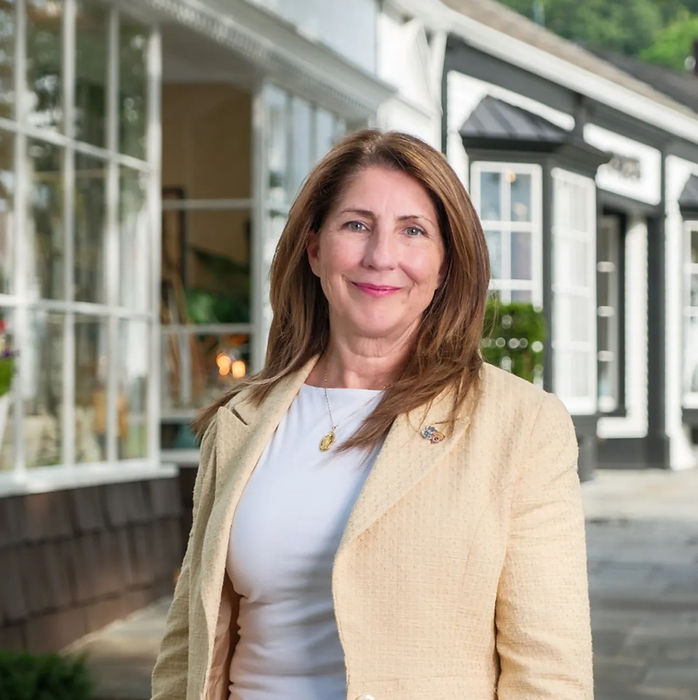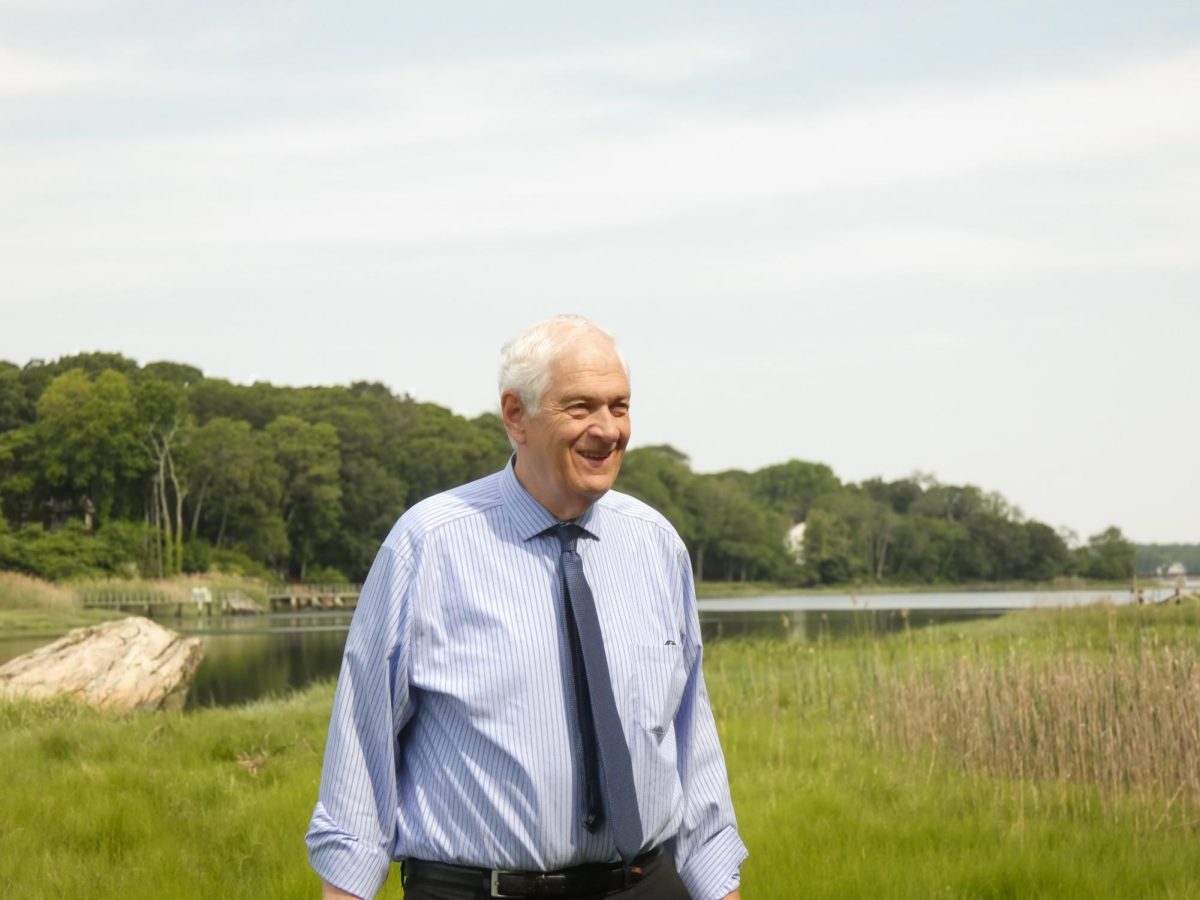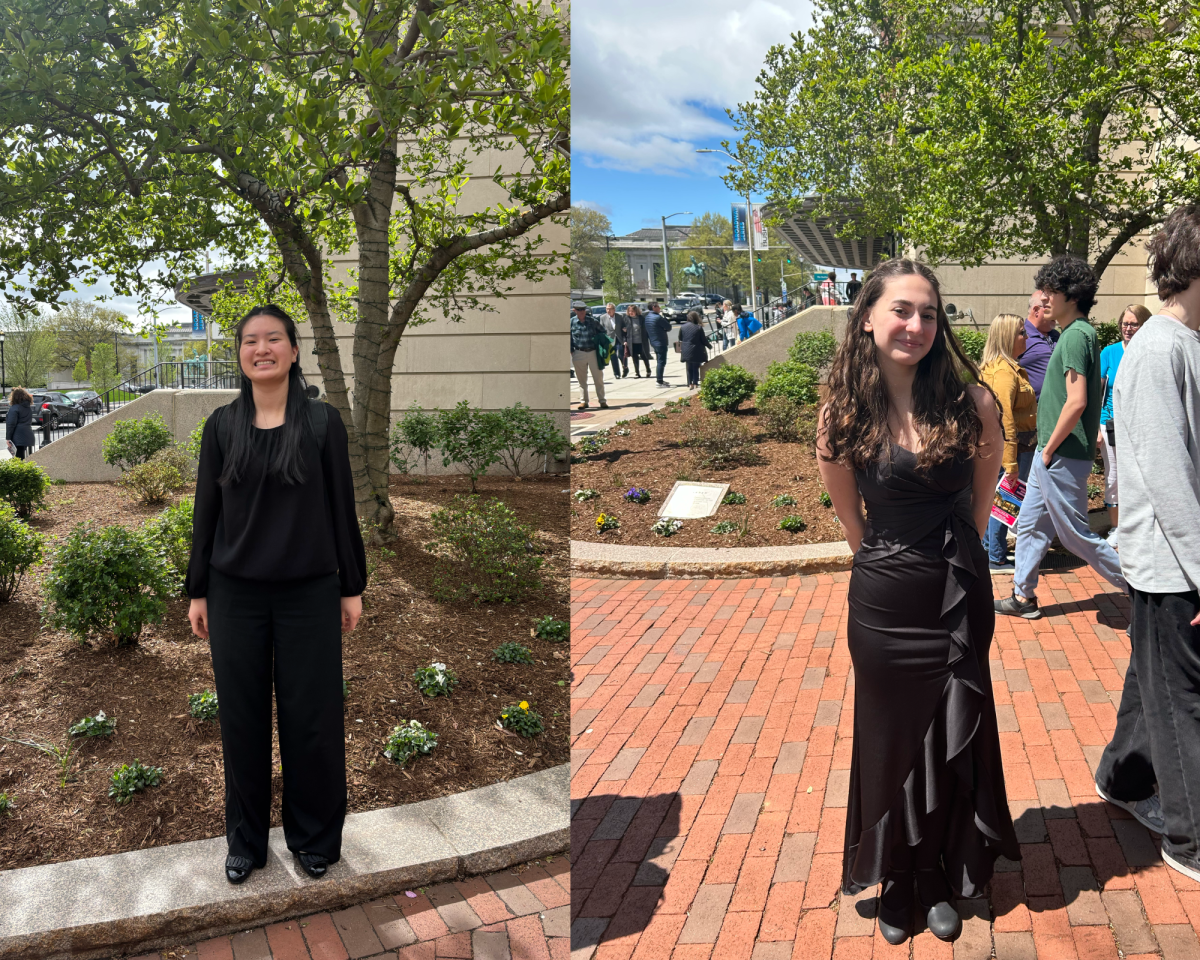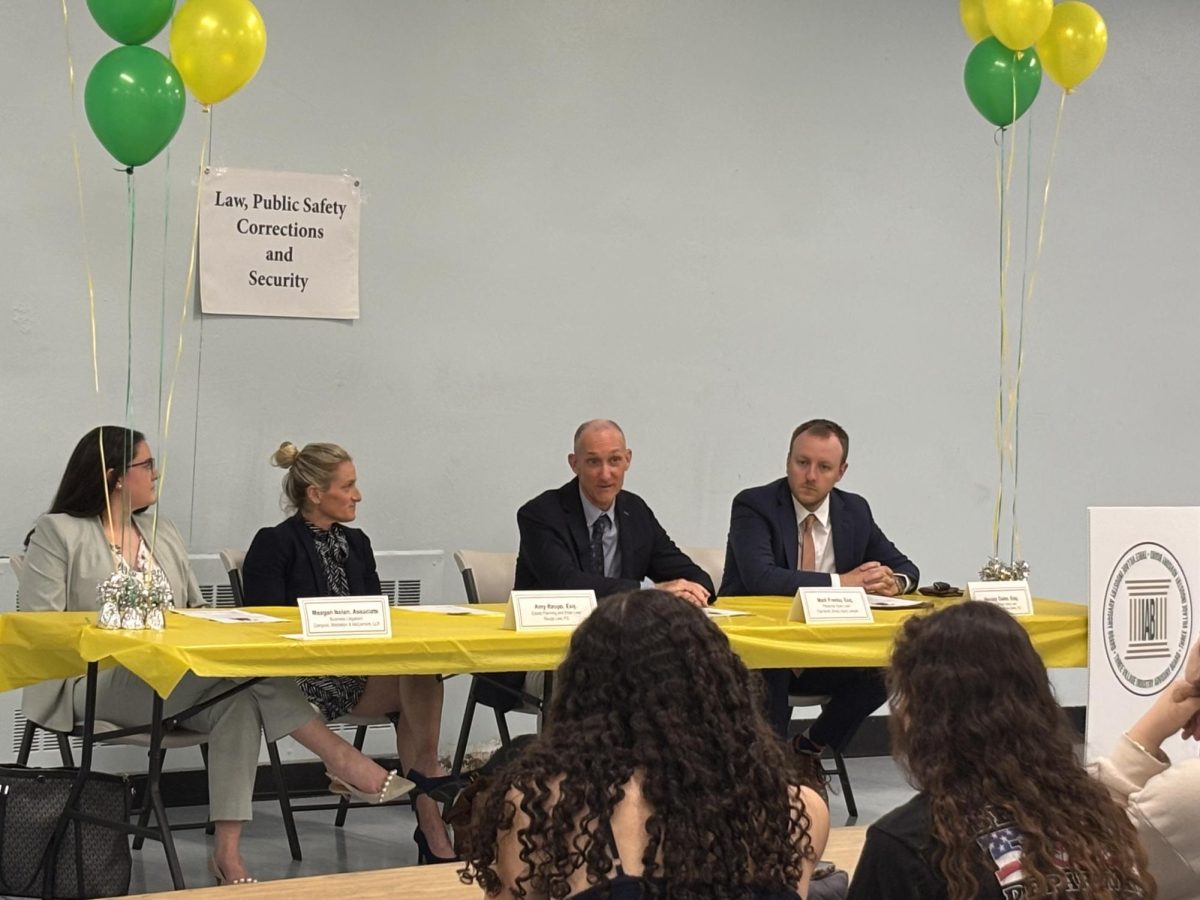Kaleidoscope sat down with Laura Endres, the Republican candidate for Suffolk County Legislator in the 5th district, challenging incumbent Steve Englebright. Below is the full interview, lightly edited for clarity.
What made you run for this position? Is there a specific issue that you want to address, or a perspective that you thought was important but unvoiced?
I used to be involved in politics from the time I was about seventeen until I was about thirty-two, and then I kind of got very involved in my practice here. But they approached me and I thought about it. I’m a big service person; I’m a member of the rotary. The rotary is an international organization. There’s a rotary club in almost every single town in the world. So I serve that way, I serve a lot in my church, and I said, “Well, this is a way I could serve a lot of people at the same time.” I like doing that. I like being out with people.
I don’t have any one real focus. I would like to reduce fees, because we have our parks, and we pay taxes for them. We have all of these things that are a benefit to us, but the fees just keep going up. For the people who really enjoy things that have fees, it’s a lot. So I guess reducing fees would be my focus, but I really want to have a global view of everything that our district could use.
Part of your campaign is about improving public safety. What is your plan to do so?
One of the ways I think we can improve public safety is by improving the morale of our police department. It’s a very difficult job. It’s dangerous, and they need to know that we appreciate them. If we care about their job, they’ll care about their job more too. Letting the police know that we appreciate them and that we want them to keep working hard for us is important, but we also have to support their budget, listen to them, and provide what they need.
You’re a past member of the women’s domestic violence shelter called Brighter Tomorrow. Do you think that experience would shape your view on public safety?
Yes. The police get somewhat burned out on domestic violence issues because, a lot of times, the victims are afraid to really make that last step and to stick with it. It’s a complete life change. Many domestic violence victims have good lives economically, and when they see where they have to go to be safe, it’s hard for them to do that. The domestic violence advocates will come and show them where they would go and how they would be safe, but [the conditions] are not great.
So one of my projects when I was there was that I got one of the interior designer professors at Suffolk Community College to donate her time, and the class made a project. They completely redecorated the shelters, and it made a huge difference. And so it makes [the life changes] easier. That’s how I would see things. But that’s how I work. When I see something that needs to get done, I think, “Who can we use to help?”
The Trump administration is expanding the role of federal law enforcement and going into many local communities. You said earlier that we need to encourage our local police: do you feel the same way about federal officers?
For our county, I don’t think we’re going to have that problem, because we have a very elite police force. I’m also going to be advocating for a substation in our district in Port Jeff, or at least more units. But I am not a proponent of a large federal government. I’m not a proponent of the federal government coming down locally unless it’s necessary.
It’s really difficult in this day and age to know what really is necessary, and that’s why they say all politics are local. We have to have the people who are living in the district being involved. And that goes to the voting too. We’ve got to get everyone involved. It can’t just be political science majors and reporters. It’s got to be everybody. It’s not scary and it can make a difference.
This year, a cell phone ban is going to be imposed on schools throughout the state. Many students and parents have expressed their concerns about contacting families in case of an emergency. Do you think that this will be a problem, and if so, do you have any plan to overcome it while still abiding by the law?
I’m old enough that I didn’t even have a cell phone until I graduated law school. Back in the day, you’d have to call the office. I think the issue with not having cell phones is going to be getting the parents used to what really is an emergency and letting them know that their children are safe. I think it might be harder for the parents than the kids with no cell phones, because you’re going through your classes and your days. It’ll be a transition for the kids, for sure, but I think that hopefully the school resources will be enough for all the phone calls.
What about in the case of a school shooting, or some similar security issue? They haven’t happened here, thank goodness, but it’s still a worry for many.
For that angle, that’s going to be a big concern. I know that it’s a feeling of safety, knowing you can contact your kids if there was a shooting at the school. We know that the contact isn’t going to really change the emergency, but it still kind of makes you feel better that you can contact your parents or they can contact you.
I really don’t know what the answer to that’s going to be, except for making sure the schools have enough security. I know that Ward Melville is pretty good. My kids went there. Not all of them, but most of them went there. Six of the seven. It wasn’t easy getting in, even as a parent, but there’s still a chance that a shooter could, so it is a concern.
A lot of your campaign is based on improving affordability in many different areas, but especially housing. What is your plan to improve affordability?
A few things. In my experience with real estate and working at the County Clerk’s Office, I’m very familiar with the whole process of purchasing. This includes all the fees, where exactly they go, title companies, government, and those types of things. So my goal really is to try to keep many of the fees that we send up to the state here. If we can keep more of those fees here, then we can reduce them.
There are also streamlined processes that we can do to make things easier and more affordable for people who are building, people who are renting. Some of those things aren’t something the county legislator can do, but relationships with the other county officials and the town officials are what’s going to be important. And since I know the process already, I don’t have to learn that.
I’m very pro-union and very pro-civil service. Right now, nobody wants to go into civil service. I was a civil servant; I loved working for the government. It’s a great way to meet people and serve people and feel good about what you’re doing. So I would never be pro-reducing jobs to reduce, of course. I think there are smarter ways to do it.
Can you expand on how your experience has given you insight on how to make things more affordable?
I really like dealing with first time homebuyers, and I’ve been doing that for a long time—almost thirty years. I do a lot of first-time homebuyer seminars, so I hear from people what their needs are. I’m involved in a business networking group that has taught me that when the realtor has business, everybody in the whole network has business. Because they need to buy furniture, they need to have a plumber, an electrician, a home inspector, a lawyer, and then they need another lawyer for their wills. So real estate really runs the show.
I’ve also dealt with many homebuyers for whom the difference in the amount of insurance that they have to pay can make them qualify or not qualify for a loan. It can be that close, so it can be those fees that they have to pay to record a deed. It used to be $100 to record a deed. It’s over $600 now. And then you have to pay the taxes.
One of the big issues I don’t have control over, but maybe that we can start a conversation about, is what’s called a mansion tax. The mansion tax is 1% for anything over a million dollars. There’s no mansion for a million dollars.
Here’s another idea. People hear co-ops and they think of New York City and these big buildings, but that’s just a concept. It doesn’t have to be a big apartment building, and co-ops are more affordable. So maybe we could have co-ops that are for young people. Instead of saying you have to be fifty-five and over, maybe you have to be under fifty-five. Then as you approach a certain age, it’s time for you to move on, take some of your equity, move to a house, and let a young person move in.
So that’s how I get all these ideas, because I talk to people about real estate all day.
Your opponent, Steve Englebright, is running with a focus on environmental protection and conservation of Suffolk County’s green spaces. What are your views on this issue?
My views are very close to his views, except for I think that we have to look at a global approach. First of all, I don’t ever want to cut down any trees. My husband wants to cut down bushes. I don’t even want to cut down bushes. I’m very sensitive to that. I worked in the parks when I was younger, and I love that. And I think there’s enough places where we could do redevelopment. We don’t need to touch any of our open space. We have open space programs and grants, and I would like to grow that, but I think redevelopment includes a global approach.
I think sewers and wastewater treatment plants are really important. They passed all those initiatives, and we’ve got to get that money into our district. A lot of the money is not coming to us. It’s going to—of course, it’s needed where it’s going—to the South Shore and all, but we need it too. And some of the fear I’ve heard is that we’re going to become like New York City, and it’s going to become too commercial if we bring in sewers. I don’t believe that. We just have to not allow that. It’s just, you say with zoning, “No, you can’t.”
I see some of the things that are coming up, and we’re not ready for them. And I don’t ever want to have to pull back. I don’t ever want to say that something is our goal, and then say, “Well, we can’t do that yet.” I want to put things in place and make it so that we’re not having any booms, and then have to say, “Oh, now we can’t support that.” So that’s important to me. I’m a very organized person.
Last year, Avalon Park and Preserve and Harbor Road were destroyed by flooding. Do you have a plan to advance the restoration of this part of the community?
I don’t know. I know the efforts that have been put in by a lot of the elected officials. I’ve spoken with them. I have some other ideas that I hope can help. At this point, it looks like it’s going to be a settlement in court, instead of an agreement. That’s unfortunate, because things can go very slow in court. My law firm, when we talk to people who want to sue, we try to manage their expectations. There’s no lawsuit that’s going to be less than two or three years. It’s very long, and here you have all these different levels of government.
I’m hoping that I can bring in a different perspective, a different personality, to the situation. I’m not a career elected official; many of the people involved are. I’m not a politician, but I am used to fixing. I’m hoping I can get in there and speak with the board, I think that would be the first thing. I want to try and propose some other ideas that I have and get things moving, because it’s such a beautiful area. It’s so sad. It really is, and all those businesses, they’re still doing good, but the draw, it’s not the same.
If elected, would this—doing whatever you can to speed up the process— be a priority for you?
I think that’s the number one thing that’s going on. I’m a very good multitasker, so there’ll be a lot of things that I’ll be addressing if I get elected. You have to have plan A and plan B; you learn that as an attorney. You keep going with the lawsuit, and pushing it to win, but you’re constantly trying to settle. If you’re not constantly trying to settle, you have an underlying motive. And I don’t like that. We need this. I love the initiative of the signs and the people. I can’t believe it, but it’s our reality, and hopefully I can get in there and get it done.
The Trump administration has cut back on funding for environmental protection efforts. What are your thoughts on these policies, especially in terms of their effect on our county?
The county has to pivot and be a voice to counteract the bad and grab the good with the different levels of government. You have to just really be aware of that and do what we can for our district, because every district is different. Our district really has a lot of beauty and we give a lot of tax dollars to everybody else, and I think we just have to fight to keep a little bit more here. With the bridge [over Harbor Road] too, we have to get that FEMA application signed before that’s done. That’s what I would do.
On your campaign website, you note that you want to “ensure the constituents of legislative District Five get fair and equitable representation.” What does this mean to you, and are there any changes you think that have to be made for this to happen?
We have a very large and diverse district. We have a lot going on in the Port Jeff[erson] Village area, and we have the train and the Port Jeff Station and the train car with concerts. But there’s a lot more to our district. I’d like to really incorporate some more events, and I’d like to be seen and give service to all our constituents. There’s a lot of people involved, and they did change the district not too long ago, and helped a little bit to make it more manageable. But that’s what I mean. Being out there more.
Transparency and accountability in local government are also two big values that you’re running for. Do you notice any flaws or places where transparency could be improved?
I think that the county legislature is really good. They have all their meetings online, and you can see them. But I think more of the behind-the-scenes of what’s going on, I’d like to explain that process more if I’m elected. I think one of the trustees in Port Jefferson Village has a monthly meeting for constituents. I do that with my clients here, my condo, co-op, and HOA board clients. We have what’s called “bagels with board members.” I think I want to do that and explain to people what the process is and what people are thinking, because many times they only hear about something when there’s going to be a hearing. We hear, “Come to this hearing, it’s gonna be in a couple of weeks.” And often you didn’t even know this was going on. So hopefully I can be more of a voice to say what’s going on. I think that’s important.
Local elections often deal with very low turnout, even below 25 percent. So how do you think we should increase political participation, especially among young people?
I looked at the stats, and something like 29% or 30% of people voted last election for the county. I said, “This is terrible. I alays vote.” And I’ve had so many people, when I’m knocking on doors, or since I’ve [started running], call me, and say, “I’m embarrassed to say this. I’m going to come and vote for you, but I’ve never voted.” And I’m like, “What?” So I’m hoping to just get people out, and it’s bad.
People have to vote. You have to come out and vote, and you can’t complain if you don’t vote. So I’m trying to do a few different things with my giveaways. I don’t know if other elected officials do this, but this is what I decided to do, because I don’t like waste. So I do the door hangers because that’s how you’re directed to do, but I have little cards. They have my name on them, but they’re biodegradable, and they have wildflower seeds in them. So I’m doing that just for fun. And then I have the jar openers and the chip clips. And so, the jar openers represent, to me, my helpful nature, that I want to help people maybe in small ways, but a lot of small ways add up. And then the chip clips are just funny. I tell people, “I’m saving one bag of chips at a time.” That’s the only way I can get people to vote more, having something in their house with a reminder.
Are there any other important issues that you are looking to take action on, and if so, how will you gain voter trust and support?
I’m not looking for large, scary changes. Small changes are what’s going to matter. I hope to make the political process look more appealing. I think that one of the good things about me and my opponent is that both of us are not negative types of people. We’re not going to do negative campaigns. I don’t think he will, from experience and his history. And even if he did, I wouldn’t. So I think we can show a nice political process.
That’s my goal: to raise the visual of running for office. I talk about what I want to do, what I can do, and [Steve Englebright] will do the same. I’ve never been a person to vote party line. You have to vote for the person, and see what they’re doing. Sometimes the opponent is better, and sometimes they’re not. You have to make your own decision and then be happy about it.

















